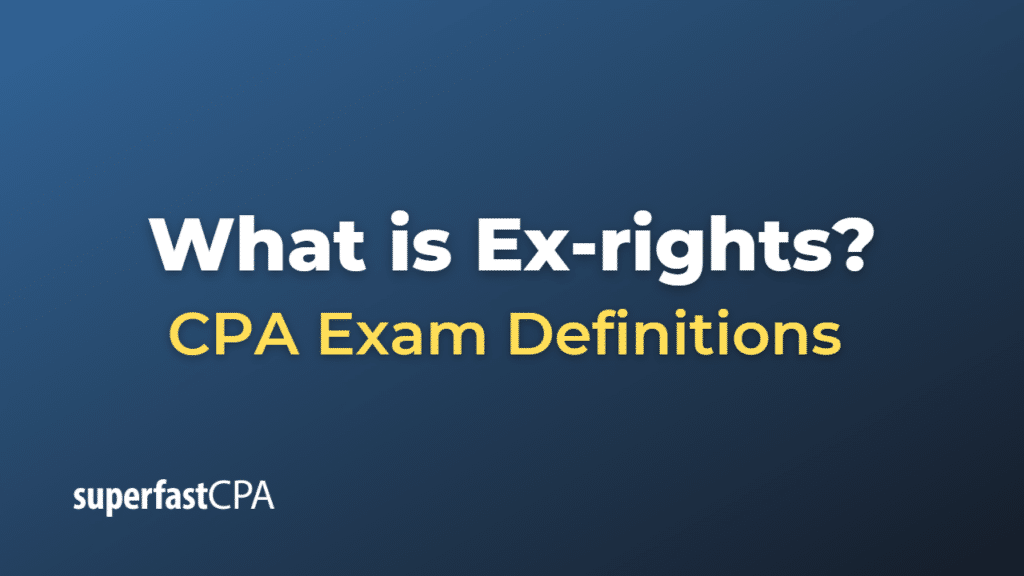Ex-rights
“Ex-rights” refers to a stock that is trading without the rights to a forthcoming benefit or dividend, often in the form of additional shares, that has been declared by the issuing corporation.
When a company announces a rights issue, it gives existing shareholders the right, but not the obligation, to buy new shares in the company at a discount to the current trading price. This is usually done by the company in an effort to raise new capital.
Once the date of record passes, which is the date when the company reviews its records to determine who the shareholders are, the stock will go “ex-rights” and new buyers will not have the rights to the discounted shares.
Shares often trade at a lower price ex-rights because new buyers won’t be able to participate in the rights offering, and because existing shareholders might sell their shares upon learning about the issuance, due to potential dilution of their share in the company.
For example, if you buy a stock that is trading ex-rights, you would not be entitled to purchase additional shares at a discount as part of the rights issue. Only those who owned the stock before the ex-rights date would be eligible for this benefit.
Example of Ex-rights
Let’s say Company XYZ is looking to raise additional capital and decides to issue a rights offering. They announce that for every two shares an investor owns, they have the right to buy one additional share at a discount.
John, an existing shareholder, owns 200 shares of Company XYZ. Due to the rights offering, he now has the right to buy 100 additional shares at a discounted price.
The company sets a record date, which is the date they will check their records to see who is a shareholder and thus who has the right to participate in the rights offering.
Now, let’s say that the day after the record date, the stock begins trading “ex-rights.” Alice buys 50 shares of Company XYZ on this day. Even though she is now a shareholder, because she bought the shares ex-rights, she does not have the right to participate in the rights offering. Only those who owned the stock before the ex-rights date, like John, have this right.
This situation illustrates that “ex-rights” means the right to participate in the rights offering is not included with the purchase of the shares.













